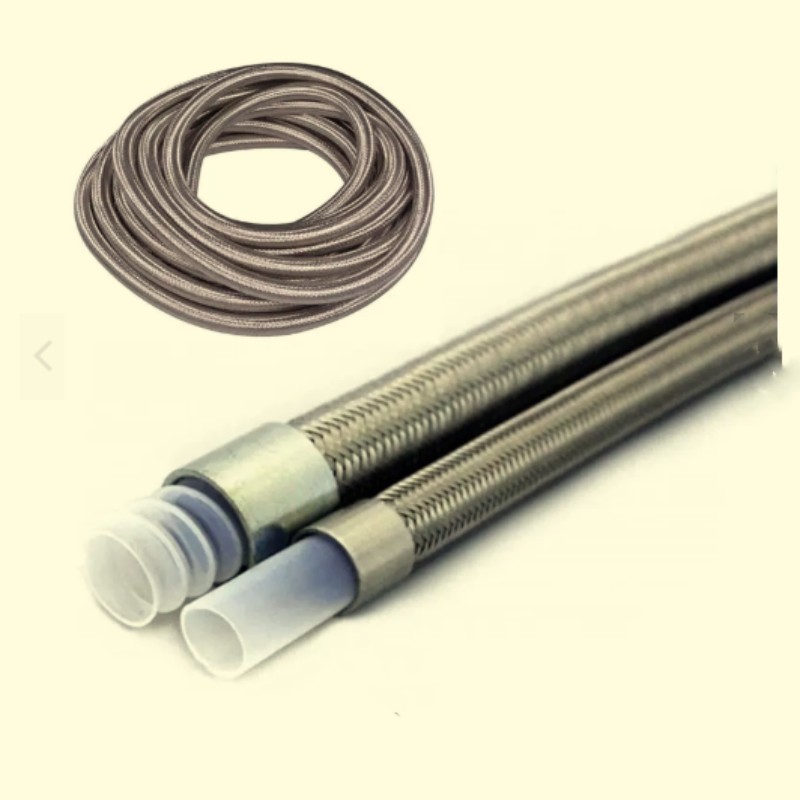Sep . 03, 2024 13:43 Back to list
best thermoplastic hose
Understanding the Best Thermoplastic Hose A Comprehensive Guide
Thermoplastic hoses have become an essential part of various industries, thanks to their flexibility, durability, and resistance to environmental factors. Made from synthetic polymers, these hoses are used in applications ranging from agriculture to automotive, and even in industrial settings. This article aims to explore the best thermoplastic hoses available in the market, highlighting their features, benefits, and ideal applications.
Key Features of Thermoplastic Hoses
1. Flexibility and Lightweight One of the most notable characteristics of thermoplastic hoses is their flexibility. Unlike traditional rubber hoses, they can easily bend and twist without compromising their integrity. This lightweight nature not only makes them easier to handle but also enables them to be used in tight spaces where traditional hoses may not fit.
2. Chemical Resistance Thermoplastic hoses are known for their exceptional resistance to a variety of chemicals. This quality makes them suitable for handling aggressive fluids, oils, and fuels, thus ensuring that they maintain their performance without deteriorating over time.
3. Temperature Tolerance Many thermoplastic hoses can withstand extreme temperatures, making them suitable for both high-temperature and low-temperature applications. This versatility allows them to be used in diverse environments and conditions.
4. Durability Thermoplastic hoses are designed to withstand wear and tear, which contributes to their longer lifespan. They are resistant to abrasion, cuts, and impacts, making them ideal for heavy-duty applications.
5. UV and Ozone Resistance Many thermoplastic hoses are also resistant to UV rays and ozone, which is essential for outdoor applications. This resistance helps prevent degradation when exposed to sunlight and atmospheric conditions.
Benefits of Using Thermoplastic Hoses
best thermoplastic hose

Choosing thermoplastic hoses for your applications presents several benefits
- Cost-Effectiveness While the initial investment may be higher compared to rubber hoses, their durability and longevity result in lower maintenance costs and fewer replacements over time. - Versatility Available in various sizes, colors, and pressure ratings, thermoplastic hoses can be tailored to specific needs, making them suitable for a wide range of applications.
- Environmentally Friendly Options Many manufacturers are now offering thermoplastic hoses made from recyclable materials, aligning with sustainability initiatives across industries.
Ideal Applications
Thermoplastic hoses are incredibly versatile and find applications in various sectors. Some of the common areas include
- Industrial Manufacturing Used for conveying fluids, air, and chemicals. - Agricultural Equipment Ideal for irrigation systems and fertilizer applications.
- Automotive and Trucking Commonly used for brake lines, fuel lines, and hydraulic systems.
In conclusion, the best thermoplastic hose is an invaluable tool for a myriad of applications due to its flexibility, durability, and resistance to various environmental factors. By understanding their features and benefits, you can make an informed decision for your specific needs, ensuring optimal performance in your operations.
-
Best Four Steel Wire Spiral Hose Hydraulic R12 – Durable High-Pressure Hose Manufacturer
NewsJul.08,2025
-
High-Quality 1/4 Hydraulic Hose – Soft, Flexible & Durable Rubber Hoses for Industrial Use
NewsJul.08,2025
-
1 1 2 Inch Hydraulic Flexible Hose - Durable, Reliable, High-Pressure Solutions
NewsJul.07,2025
-
High-Quality 1 2 Rubber Hose - Durable, Flexible Hydraulic Solutions
NewsJul.07,2025
-
Discover SAE Hydraulic Hose Types - High Quality & Durable Hoses from Leading Factory Supplier
NewsJul.06,2025
-
High Pressure Wire Hydraulic Rubber Hose Supplier Durable & Reliable 1SN Hose Solutions
NewsJul.06,2025
